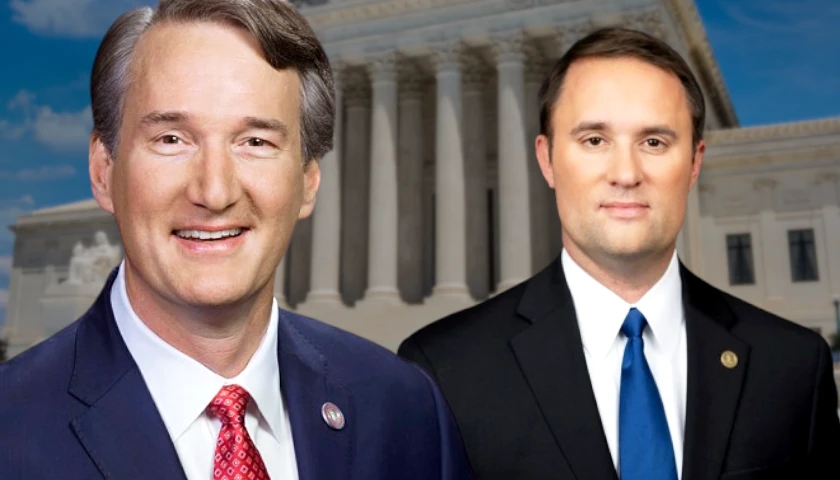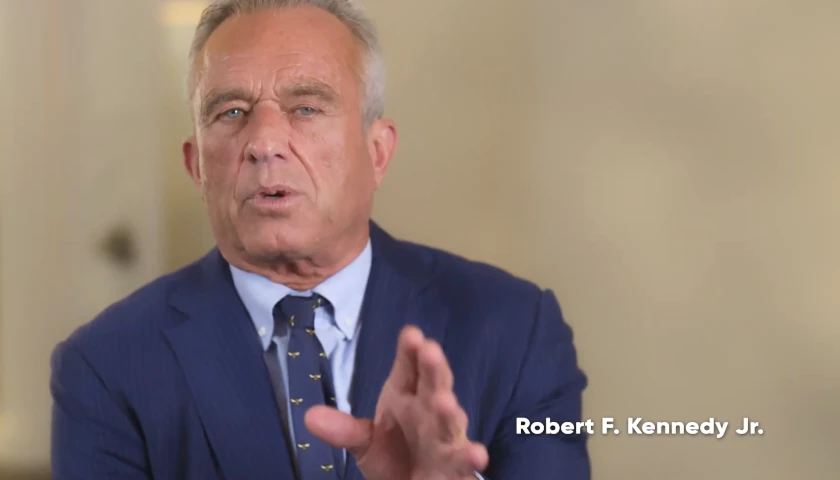by Todd Carney
Most state residents think of their secretary of state as someone who is in charge of their department of motor vehicles. Few realize that the decisions of secretaries of state could determine who becomes president. Dozens of states will hold elections this fall that will determine the officials who will run state elections in 2024 – and these officials could play crucial roles in the next presidential vote count.
Surprises in the Administration of Elections
In many states, much election administration actually occurs outside of the secretary of state’s office, at the county clerk level. Officials of a pivotal county, such as Maricopa County, Arizona, could have as much impact on the administration of elections as the secretary of state. In RealClear’s panel discussion, Michigan’s former solicitor general John Bursch maintained that even in states with such a setup, the secretary of state can have a major impact. Michigan’s current secretary of state, Jocelyn Benson, won election in 2018. Once in office, she accepted money from Mark Zuckerberg’s foundation to spur absentee-ballot turnout and directed more of the money to Democratic counties.
2022 vs. 2024
The 2022 midterm elections are less than four months away, and Republicans will likely make significant gains at all levels of government. These gains should include officials elected to positions in which they will manage election administration through the 2024 election. In RealClear’s panel discussion, Oakland University professor David Dulio noted that there are many elections for offices other than secretary of state that will have an impact on the 2024 elections. In Michigan, for example, Republicans failed to get their preferred election changes through the executive branch because Democrats control the governorship and secretary of state, so Republicans put their election proposal up as a ballot initiative. If they are successful in Michigan, they will likely push similar initiatives in other states.
While the Republicans’ 2022 prospects look good, some Democrats may still hold on. A secretary of state has a strong chance of reelection, for example, if he performs well in the non-election components of the job (such as giving out drivers licenses). And Republicans have nominated controversial candidates for statewide office in Nevada, Michigan, and Pennsylvania, whose success is far from assured.
If Republicans win control of the governorships, secretaries of state, attorneys general, and other relevant offices for election administration in all or most swing states, they will be able to run state elections as they prefer. If Democrats hang on to more of the relevant offices in swing states, it could lead to divided government in these states and prevent these states from enacting election legislation. Such a scenario would likely lead to election litigation, as we saw in 2020.
Does the State Matter?
To the extent that many Americans know much about secretaries of state in election matters, they remember figures like Katherine Harris in Florida in 2000, Kenneth Blackwell in Ohio in 2004, and Brad Raffensperger in Georgia in 2020 – officials who presided over contentious outcomes. In RealClear’s panel discussion, election attorney E. Mark Braden stressed that all secretaries of state do important work, but whoever has to oversee a close election goes under a microscope. From a national perspective, the secretaries of state in about eight states will matter the most because those states will decide the presidential election.
Additionally, gubernatorial elections in states such as California and New York, along with congressional elections around the country, can have a major impact nationally. So the administration of elections in every state matters.
Finally, a partisan state’s election policies can inspire changes in election administration in other states. Oregon, a blue state, was the first state to allow universal mail-in voting, and since then, Colorado, a purple state, and Utah, a red state, have enacted universal mail-in voting.
What’s Next?
Ultimately, a close presidential election could be decided by relatively obscure state and county officials. By the time the public takes note of these officials, it’s usually after a presidential election has occurred, when these officials have already made consequential decisions. The media, activists, and voters should pay more attention beforehand to who runs elections and how these officials plan to conduct elections.
To make the administration of elections more fair, states should either mandate that election administrators have Republicans and Democrats on their staffs or replace these officials with a commission that contains members from both sides. And all election administrators should be accountable to the state legislature.
– – –
Todd Carney is a lawyer and frequent contributor to RealClearPolitics. He earned his juris doctorate from Harvard Law School. The views in this piece are his alone and do not reflect the views of his employer.









